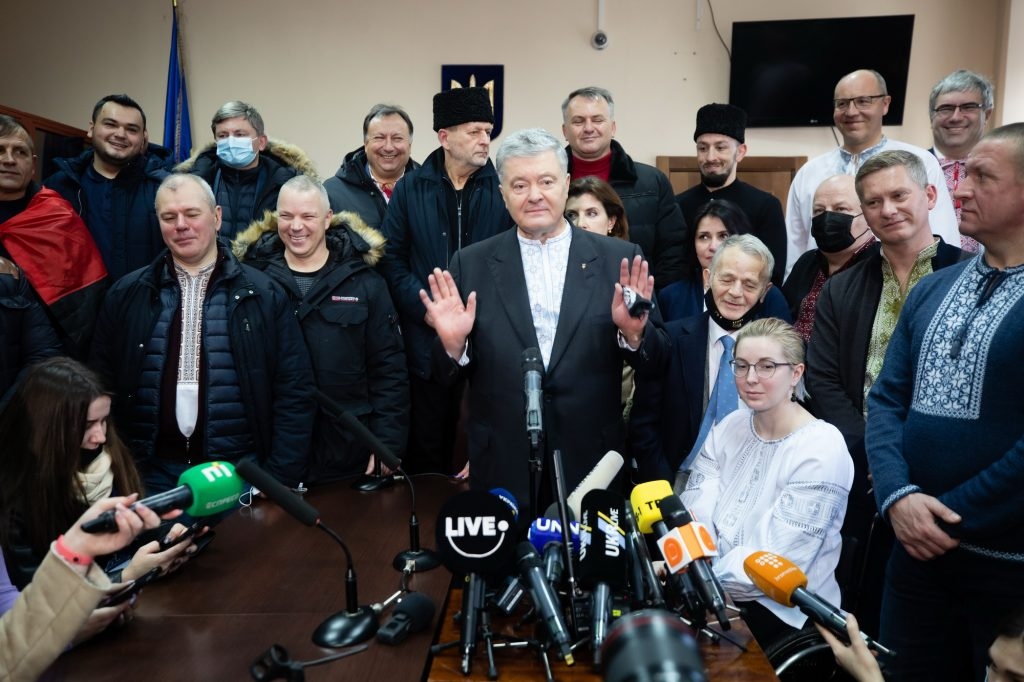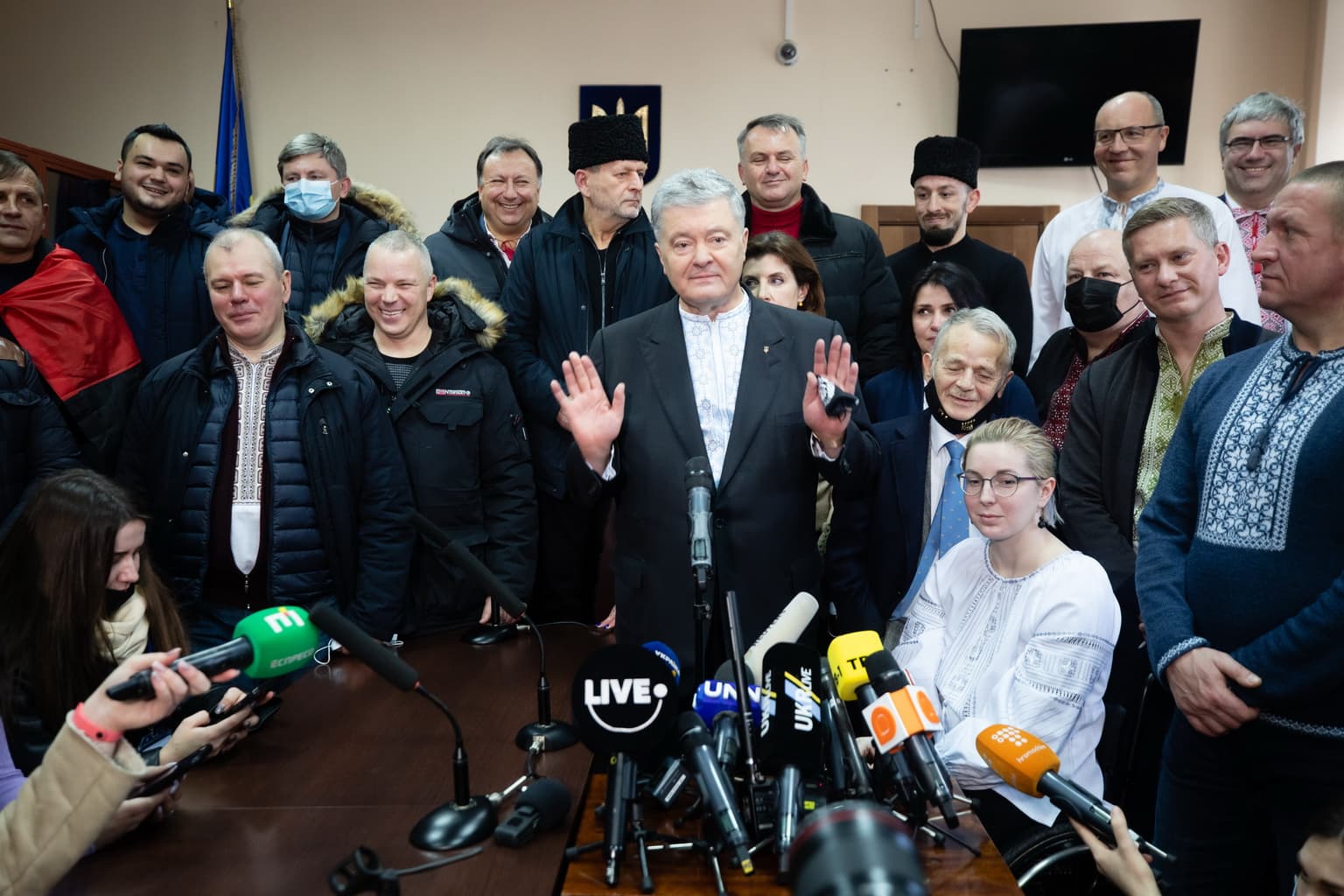
Kyiv’s Pechersk District Court made its long-anticipated ruling on the pre-trial arrangements of ex-President Petro Poroshenko.
On Jan. 19, the court ordered Poroshenko to sign a writ of personal recognizance, which is a pledge by the defendant to attend court without posting bail. The court chose not to place Ukraine's fifth president in pre-trial detention, which had been demanded by prosecutors.
According to the ruling, Poroshenko has to hand over his international travel documents, and cannot leave Kyiv or Kyiv Oblast without the permission of the prosecution or court. The restrictions are set for two months, until March 19.
Poroshenko returned to Ukraine on the morning of Jan. 17 after a one-month absence, and immediately headed to the court hearing, which was due to choose a pre-trial restriction measure for him.
The prosecution asked the court to arrest Poroshenko and set the bail at Hr 1 billion ($37 million). After an 11-hour hearing on Jan. 17, a ruling could not be made. At the resumed hearing on Jan. 19, the judge announced the ruling almost immediately.
Poroshenko was charged with high treason in December. He is suspected of conspiring with Kremlin-linked Ukrainian politician Viktor Medvedchuk to supply coal from Russian-occupied territories in eastern Ukraine in 2014-15, when Poroshenko was president. If found guilty, the former leader faces 12-15 years in prison.
Medvedchuk has also been charged in the case, along with Volodymyr Demchyshyn, who was the energy minister at the time of the alleged purchases. Medvedchuk has remained under pre-trial house arrest since May, while Demchyshyn is currently on an international wanted list and his whereabouts are unknown. Businessman Serhiy Kuzyara was also charged in the case and is currently under house arrest.
Poroshenko, Medvedchuk, and Kuzyara deny wrongdoing and call their prosecutions politically motivated.
“It is an obstruction to my political activity both inside the country and abroad,” Poroshenko told Ukrainska Pravda on Jan. 17.
At the Jan. 19 hearing, Poroshenko accused Zelensky's administration of selective justice and trampling over the princliples of rule of law.
International reaction
Western diplomats did not explicitly criticise the trial, instead calling for political unity in Ukraine in the face of ongoing Russian agression. Russia currently has 122,000 troops stationed near Ukraine's borders, with Ukrainian and Western intellegence services repeatedly highlighting the risk of a large-scale invasion.
Russia has been refusing to hold direct emergency negotiations with Ukraine, preferring to strike a deal with Ukraine's Western partners.
U.S. Secretary of State Antony Blinken, who met Zelensky in Kyiv on Jan. 19 to discuss the ongoing crisis, emphasized the importance of unity in Ukraine.
"I think one of Moscow’s longstanding goals has been to try to sow divisions between and within countries, and quite simply we cannot and will not let them do that," Blinken told Zelensky.
British ambassador to Ukraine Melinda Simmons wrote on Twitter: "All political leaders in Ukraine need to unite against Russian aggresion right now."
"So important at this time not to lose sight of this or be distracted by polarising domestic politics."











